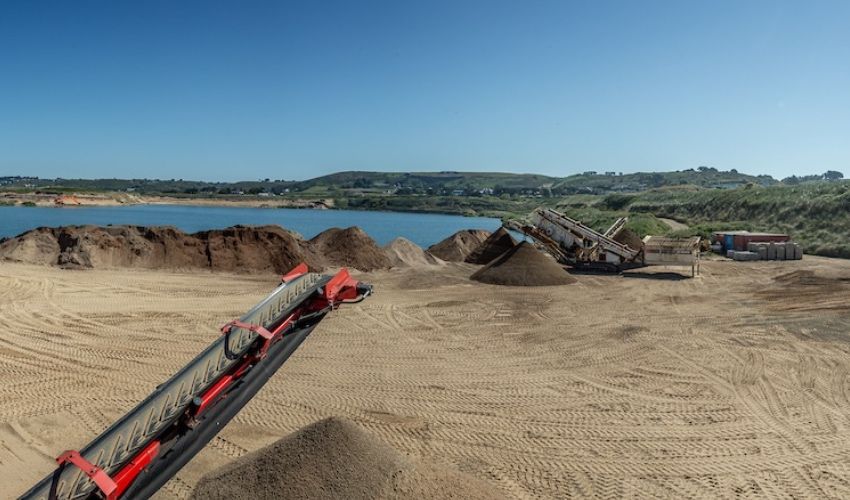


The construction industry has said that the suspension of sand quarrying in the island will quickly cause it significant problems, leading to project delays and extra costs.
Yesterday, the only provider of building sand in Jersey – which is dug from St. Ouen’s Bay – announced that it was suspending excavation from 1 September because it had removed all of the sand it was allowed to under its current Government-issued licence.
Owner Jason Simon said that, although the five-year permit ran until the end of 2023, high demand from the construction industry had exhausted reserves quicker than expected.
He added that requests to Government to extend the licence to allow him to extract fresh reserves had been “ignored” despite there being “no credible, reliable or consistent replacement ready.”
That appears to the case, with construction heads now saying that reserves of sand and concrete would be quickly exhausted without fresh supply.
Martin Holmes, who chairs the Jersey Construction Council, said: “I am in discussion with both Government and Simon Sand at present to see if we can progress matters. Before commenting further, it is important that I have a clear understanding of the issues, in what I am aware is a long running and complex matter.”
Pictured: The quarry in St. Ouen's Bay has produced a body of water as sand has been extracted (Credit: Google Maps).
However, Mr Holmes added: “Suspension of the primary source of an essential building material at such short notice will quickly cause significant programme and cost issues for the construction industry.”
The draft Island Plan, which has been shortened to a three-year period because of the pandemic, envisages the sand quarry closing by the end of 2023, with building sand then being created by washing inert waste, crushing rock down, and some being imported.
However, those alternative sources are not yet ready in sufficient quantities, leading the Island’s booming building industry to potentially be without one of its fundamental ingredients, at least in the short term.
Environment Minister Deputy John Young said that he understood that there were unextracted areas of sand within the Simon Sand’s current permit, so he was unsure why the suspension had been announced.

Pictured: Environment Minister John Young: "There are still unextracted areas within the quarry's existing permit".
“We have declined an application to allow extraction into new areas of land, but we did decide to extend the time limit of the existing permit to the end of 2023,” he said. “I recognise that the unextracted areas within the current permit might be more difficult to access but it will take us through this interim period, until there are alternatives in place.”
Deputy Young added that the quarry giving a week’s notice before suspending excavation “was not a responsible thing to do”.
He said that other quarries already produced by-products that could be used as an alternative to sand, and that Ports of Jersey could already receive imported sand, but he conceded that this was not yet at a rate to match current demand.
This morning, the National Trust – which his campaigned for sand extraction to end in St. Ouen’s Bay – said it was “absolutely crucial” that Planning was not “unduly pressurised into granting additional consents when enforcement issues remain outstanding”.
Pictured: The National Trust wants the quarry to be returned to a natural habitat.
The organisation said that the operator of the quarry had not met previous planning obligations to begin restoring the area.
However, Simon Sand argue that the Government rejected its plans to retain the large body of water that quarrying has created and has not provided a credible solution to how the existing lake will be infilled.
An additional challenge is that the water is contaminated by a manmade chemical linked to cancer and liver disease called PFAS, which was an ingredient of firefighting foam sprayed at the Airport until the early 1990s.
The chemical is also stopping Jersey Water fully utilising boreholes in the bay that it relies on to provide drinking water.
Comments
Comments on this story express the views of the commentator only, not Bailiwick Publishing. We are unable to guarantee the accuracy of any of those comments.